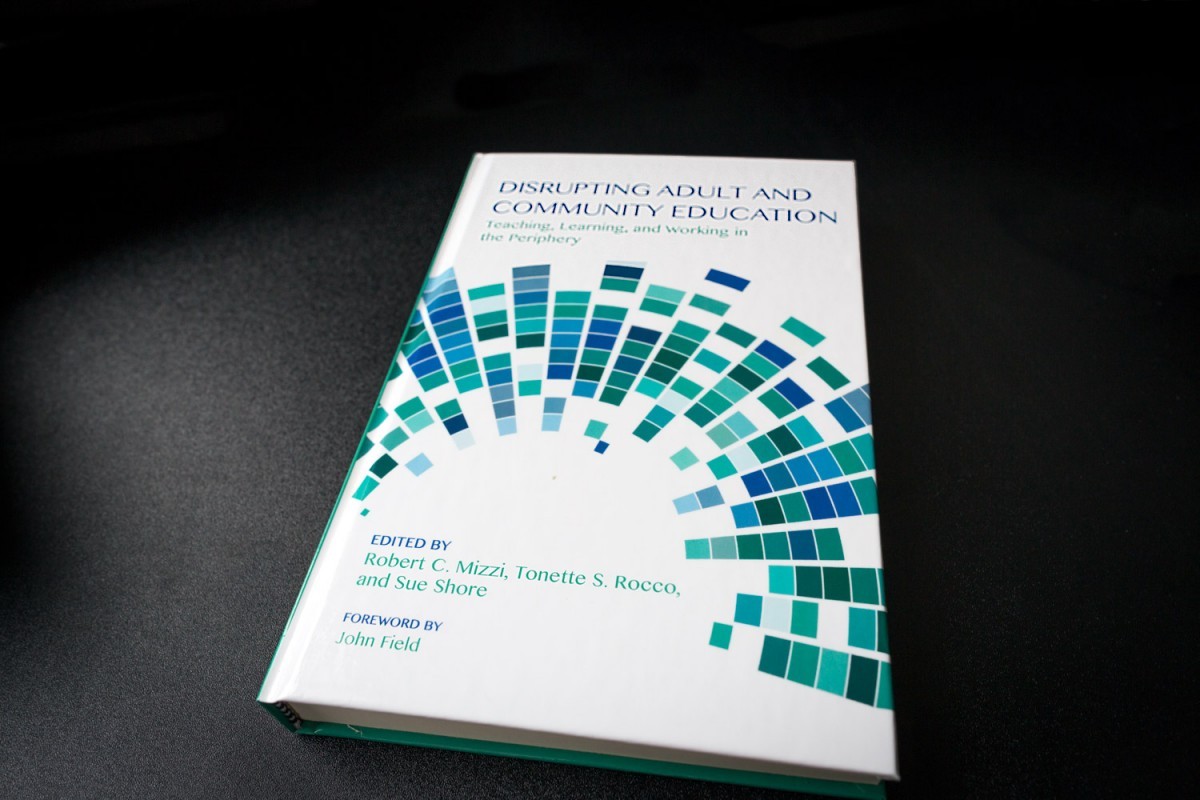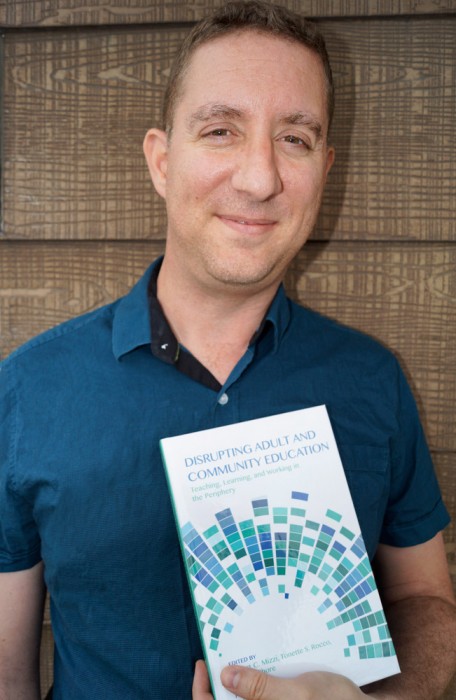
Robert Mizzi's new book challenges educators and administrators to rethink their practices and consider barriers to education.
Returning adult education to its roots
New book encourages opportunities for the marginalized
The idea for the book arose over a livingroom discussion in around a simple question: What is missing from adult education?
Then completing his post-doctoral fellowship at Florida International University in Miami, assistant professor Robert Mizzi was working with his mentor and soon-to-be co-editor, Tonette Rocco, a leading U.S. thinker in adult education.
“I said, ‘What’s lacking in the field are those people who are the most marginalized in society’,” said Mizzi, who works in the Educational Administration, Foundations and Psychology department.
From that January 2012 chat in Rocco’s livingroom, came Mizzi’s new book, “Disrupting Adult and Community Education: Teaching Learning, and Working in the Periphery.”
Co-edited with Rocco and Australian education Prof. Sue Shore, the book challenges educators and administrators to rethink their practices and consider barriers to education such as tuition, recruitment and recognition for prior learning experience.
“Traditionally, adult education has been for people who are on the periphery, but in recent decades, it’s shifted to becoming what I see as an exclusive environment of learning and teaching,” Mizzi said. “With the rise of globalization and neoliberalism, what we’re getting is more and more distance from hearing those voices. So we need to bring the field back to its roots of social justice, and look at stories that have really been forgotten over time.”
Drawing strength from a diversity of voices, the book brings together perspectives from authors from around the world.
“Me being Canadian, Tonette being American and Sue being Australian, we had a vast network of national and international groups,” Mizzi said, adding that when deciding on topics and contributors for the book, the editors selected researchers and scholars best able to give voice to the most marginalized people.
The editors assembled a team of 32 authors, covering topics that include: exploring sex trade workers, women with disabilities in Bangladesh, and unauthorized migrant workers.
Although the book was released just last month, already the response has been “overwhelmingly positive.
“I have been getting just some wonderful emails from people stating that this is an exceptional collection,” Mizzi said, adding the publication has been nominated for a Phillip E. Frandson Award for Literature in the Field of Professional, Continuing, and Online Higher Education.
The book has been featured at the annual conferences for several conferences, including the annual Congress of the Humanities and Social Sciences Social Sciences, the Canadian Association for the Study of Educational Administration, and the Canadian Association for the Study of Adult Education, “and they’re proud that this is a Canadian-led publication,” Mizzi said, adding he has already been approached for a second edition, and there is no shortage of material to mine.
“What I’ve learned is that there is so much work to be done in this area. This (book) is just scraping the iceberg in the sense of what is to come,” Mizzi said. “What surprised me the most was just how many communities and groups are under-represented, and how many want to share their voice, so, if I can continue to share that space through future research or publications, then I will continue to do that.”







